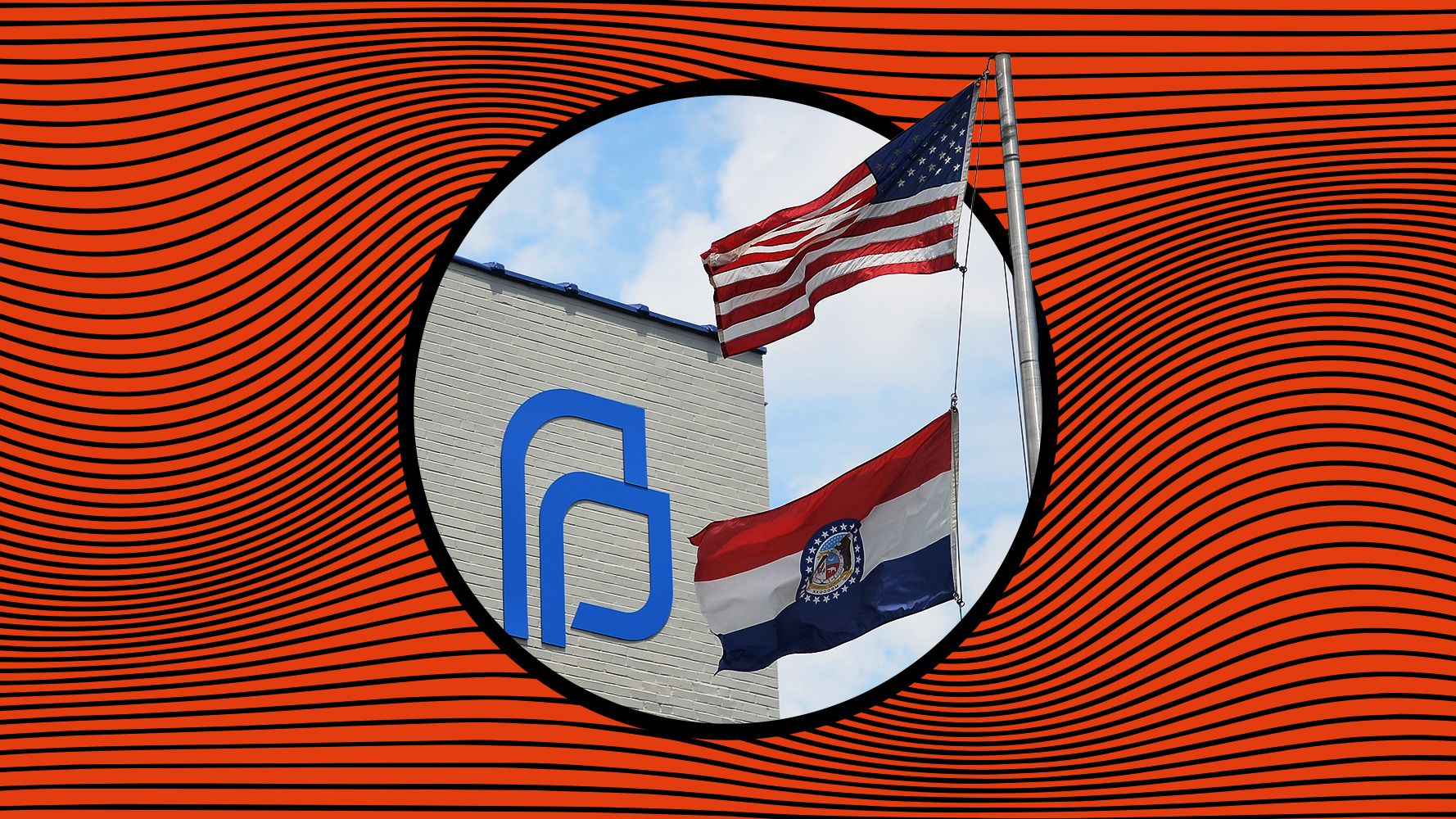The Struggle for Abortion Access During the Coronavirus Pandemic
States including Texas, Ohio, Mississippi, Iowa, Alabama, Kentucky, and Oklahoma have banned abortion procedures in the wake of covid-19. Women desperately need their constitutionally protected right to care.


UPDATE, April 21, 2020: Yesterday, the 5th U.S. Circuit Court of Appeals announced in a 2-1 opinion that Texas officials could legally restrict access to medication abortions during the coronavirus pandemic, claiming “the constitutional right to abortion does not include the right to the abortion method of the woman’s (or the physician’s) choice.” The decision comes less than a week after the courts first decided that Texas had not “made a strong enough case for banning medication abortion,” per Politico. The courts had eased the temporary ban on April 14, saying that a medication abortion was not a “procedure” and did not interfere with hospitals treating COVID-19 patients. Monday's decision revoked that ruling, meaning the issue will likely be taken to higher courts in the weeks to come.
ORIGINAL STORY, April 8, 2020: Heather* is a 30-year-old single mom living in Texas. She was just laid off from her full-time job as a result of Covid-19. She has no health insurance, no additional source of income, and she has no idea how she’s going to continue to pay her bills or provide for her two sons.
She’s also six weeks pregnant and unable to get the abortion she wants and needs.
“A pregnancy, for me, has the potential of being high-risk,” Heather tells Marie Claire. “I have a prolapsed uterus, cervix, and bladder. I would not be able to work full-time, and could be bedridden for a majority of my pregnancy. And I just do not want to have a child right now. Beyond all of the logical reasoning against continuing a pregnancy, I just don’t want to be pregnant.”
Despite her best efforts, Heather cannot access abortion care where she lives. On March 23, the state’s governor deemed the procedure medically unnecessary during the coronavirus pandemic, claiming a need to preserve personal protective equipment and hospital beds. A lawsuit filed on March 25 by Planned Parenthood and the Center for Reproductive Rights led to a temporary stay, allowing abortion services to continue. But just 24 hours after the ban was lifted, it was reinstated by the Fifth Circuit Court of Appeals.
“I have been a nervous wreck,” Heather continues. “On top of having severe anxiety, hormonal difficulties from this pregnancy, and constant fear from the encroaching pandemic, the back and forth litigation has been overwhelming. I've had two appointments cancelled, only to be rescheduled days later. I'm going from extreme elation to extreme lows. I'm physically sick from it and unable to parent my sons the way they deserve during this crisis.”
Texas is not alone in its efforts to thwart a woman's right to choose. So far, the GOP governors and acting attorneys general of Ohio, Mississippi, Iowa, Alabama, Kentucky, and Oklahoma have also called for the cancellation of abortion services.
Get exclusive access to fashion and beauty trends, hot-off-the-press celebrity news, and more.
Meanwhile Republicans have tried to include anti-choice language in a Coronavirus relief bill, the Hyde Amendment was expanded in the recently passed Covid-19 emergency spending bill, and anti-choice groups have urged the Department of Health and Human Services to use its authority to ban abortion outright—a blatantly unconstitutional request.
“Anti-abortion policy makers have a long history of trying to attach draconian abortion restrictions to federal legislation,” says Megan Donovan, senior policy manager at the Guttmacher Institute. “And the threat remains as they move on to new Covid-19 responses. Members of Congress and this administration will seek to use these moments to negotiate and sort of force in anti-abortion policies in order to try and score political points instead of focusing on mitigating the public health crisis.”
While some lawmakers claim banning abortion would free up medical personnel and equipment, Dr. Dan Grossman, director of Advancing New Standards in Reproductive Health, an abortion research group at the University of California, proved via Twitter that it won’t. Studies have also shown that people who are refused wanted abortions are more likely to experience pregnancy complications—which would require a large amount of personal protective equipment to adequately treat. Those people are also more likely to experience depression and other mental health issues. They are more likely to live in poverty. And the children they already have are more likely to suffer in the long term.
And now that nearly 10 million Americans have filed for unemployment as a result of the coronavirus, these outcomes are likely to be exacerbated by a pandemic that is making it increasingly harder for people to provide for their families.
“We know in times like this people aren’t going to stop getting pregnant,” Dr. Ghazaleh Moayedi, a board member for Physicians for Reproductive Health and an OB-GYN and abortion provider in Texas, tells Marie Claire. “We’re probably going to see more pregnancies as a result of this pandemic than we would normally expect during the summer months. So our services are going to continue to be needed.”
She continues, “All the things that this whole country is going through right now? That’s what people seeking abortions go through every day: How am I going to pay for my care? How am I going to make money? How am I going to miss work? How am I going to get childcare? That’s what people seeking abortion care think all year, every year.”
Of course, barriers to abortion access are nothing new; the anti-choice movement has worked tirelessly since the passage of Roe v Wade to limit access to these medical services, especially for Black people, poor people, young people, people who live in rural communities, and people in the LGBTQ community. Even prior to the pandemic, 89 percent of counties nationwide did not have an abortion provider, while one-third of all abortion patients had to travel an average of 25 miles, both ways, to seek care.
So how could the state and federal government ease the burden on both patients and providers and eliminate unnecessary barriers to abortion access? For one, utilize telemedicine and telehealth services—as the federal government is already calling on general physicians to do—and lift the ban 18 states have on using telemedication for medication abortions. This would allow people to have abortion medication mailed to them, providing safe, legal abortions in the comfort of their homes. States also could wave mandatory waiting periods—which require the people who are seeking abortions to undergo multiple in-person visits, putting themselves at further risk of contracting the novel coronavirus. Medicaid and medicare policies could be adjusted to cover abortion costs and states could forbid anti-choice protestors from gathering outside of clinics. (Despite warnings from public health officials to remain indoors, protestors continue to demonstrate outside abortion clinics, yelling obscenities or spreading lies about contracting Covid-19 inside.)
Donovan adds that states also could allow more healthcare workers, rather than just certified OB-GYNs, to provide abortions. She notes that physician assistants, nurse practitioners, and certified nurse midwives could “be assisting in making abortion care available at any time, including a time of crisis like this.”
While the fate of abortion access in Texas during this pandemic plays out in court, Heather is continuing to try to access the care she needs. “I spent all of Wednesday cold calling women's health clinics and Planned Parenthoods in New Mexico, Colorado, Kansas, Illinois, and Missouri,” she explains. “I found a clinic that will see me—it is about nine hours away, in New Mexico, on the border of Texas. This kind of road trip entails spending more money, working out somewhere safe for my children to be, trying to find someone who will drive with me, and risking coronavirus exposure from making multiple unnecessary stops to use restrooms and get gas.”
Still, she plans to leave as soon as she can—despite the added risk.
“My life matters. My sons' lives matter. Forced birthing does not sound like freedom. It does not sound like America. It is dystopian, devastating, and unconstitutional."
If you are in Texas and are seeking abortion you should continue to reach out to your local clinics. Other resources include: Clinic Access Support Network, The Yellowhammer Fund, The Lillith Fund, Fund Texas Choice, West Fund, Naral Pro-Choice Texas, the National Network of Abortion Funds, La Frontera Fund, and Jane’s Due Process.
*Heather’s last name has been withheld to protect her identity and safety.
For more stories like this, including celebrity news, beauty and fashion advice, savvy political commentary, and fascinating features, sign up for the Marie Claire newsletter.
RELATED STORIES



Danielle Campoamor is Marie Claire's weekend editor covering all things news, celebrity, politics, culture, live events, and more. In addition, she is an award-winning freelance writer and former NBC journalist with over a decade of digital media experience covering mental health, reproductive justice, abortion access, maternal mortality, gun violence, climate change, politics, celebrity news, culture, online trends, wellness, gender-based violence and other feminist issues. You can find her work in The New York Times, Washington Post, TIME, New York Magazine, CNN, MSNBC, NBC, TODAY, Vogue, Vanity Fair, Harper's Bazaar, Marie Claire, InStyle, Playboy, Teen Vogue, Glamour, The Daily Beast, Mother Jones, Prism, Newsweek, Slate, HuffPost and more. She currently lives in Brooklyn, New York with her husband and their two feral sons. When she is not writing, editing or doom scrolling she enjoys reading, cooking, debating current events and politics, traveling to Seattle to see her dear friends and losing Pokémon battles against her ruthless offspring. You can find her on X, Instagram, Threads, Facebook and all the places.